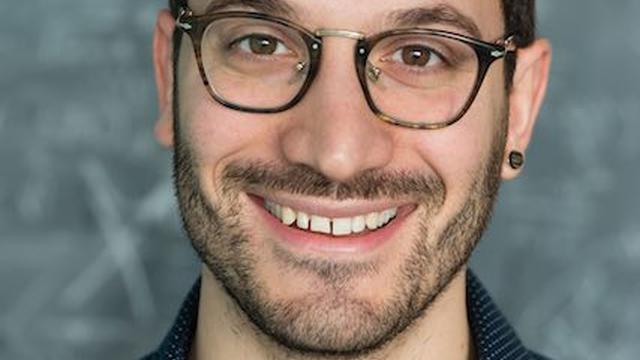Award
Researcher Fabrizio Rompineve receives the Buchalter Cosmology Prize
January 16, 2024
Theory DivisionFabrizio Rompineve, researcher at the UAB Department of Physics and at the Institut de Física d’Altes Energies (IFAE), has been awarded the Buchalter Cosmology Prize for his research on gravitational waves from the early universe.
The article “Footprints of the QCD Crossover on Cosmological Gravitational Waves at Pulsar Timing Arrays ”, has been awarded the Buchalter Cosmology Prize (Third Prize) of $2500 for “providing an interesting and timely test for a potential early universe contribution to the stochastic background of gravitational waves, arising from features imprinted by the QCD phase transition that could be detected by pulsar timing arrays.” according to the competition’s jury. The prize will be awarded to the three authors of the paper, Fabrizio Rompineve, Gabriele Franciolini (CERN) and Davide Racco (ETH and U. Zürich).
The Buchalter Cosmology Prize is an annual award that stimulates ground-breaking theoretical, observational, or experimental work in cosmology that has the potential to produce a breakthrough advance in our understanding. It was created to support the development of new theories, observations, or methods that can help illuminate the puzzle of cosmic expansion from first principles.
Fabrizio Rompineve is a Ramón y Cajal fellow in the Department of Physics at the UAB and researcher at IFAE. He obtained his PhD in Physics at the University of Heidelberg (DE) in 2017 and was a postdoctoral researcher at IFAE until 2019. He then held a postdoctoral position at the Institute of Cosmology at Tufts University (USA, 2019-2021), before joining the Theory Department at CERN as a fellow in 2021. He joined the UAB staff in 2023.
Since September 2023, Fabrizio is a member of the European Pulsar Timing Array (EPTA), one of the leading collaborations in the search for the stochastic background of gravitational waves. Together with other PTA collaborations, the EPTA has reported evidence for such a background in June 2023 . Such backgrounds may have been generated in the early Universe, in the presence of new physics beyond the Standard Model of particle physics. Therefore, the stochastic background of gravitational waves provides the opportunity to probe and constrain the next layer of fundamental physics.
Aditional information

